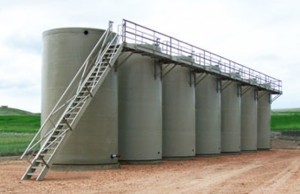
Bakken well completions rose sharply last month, according to the North Dakota Department of Mineral Resources (DMR). The DMR reports a preliminary completion count for March was 189, up 350% from 42 the previous month.
Related: Bakken Rigs Decrease to 77
Many oil and gas companies who have been hard hit by low crude prices are postponing well completions as a temporary measure in order to wait out the crisis with plans to resume production when oil prices rebound. But oil prices remain unstable, why would North Dakota experience a spike?
Director of DMR Lynn Helms speculates that the increase is likely due to state-mandated time limits and major tax incentives, which forced companies to bring 125 wells online by June to comply with time limits.
Nathan Conway, CEO of Fortis Energy Services, told OAG360 that “In the state of North Dakota, a well can only be left for 12 months after being drilled before it needs to be either completed or temporarily abandoned. Many companies are choosing to complete the wells now rather than plugging them.”
The DMR further reports that at the end of March there were an estimated 880 wells waiting on completion services.
Read more at dmr.nd.gov



